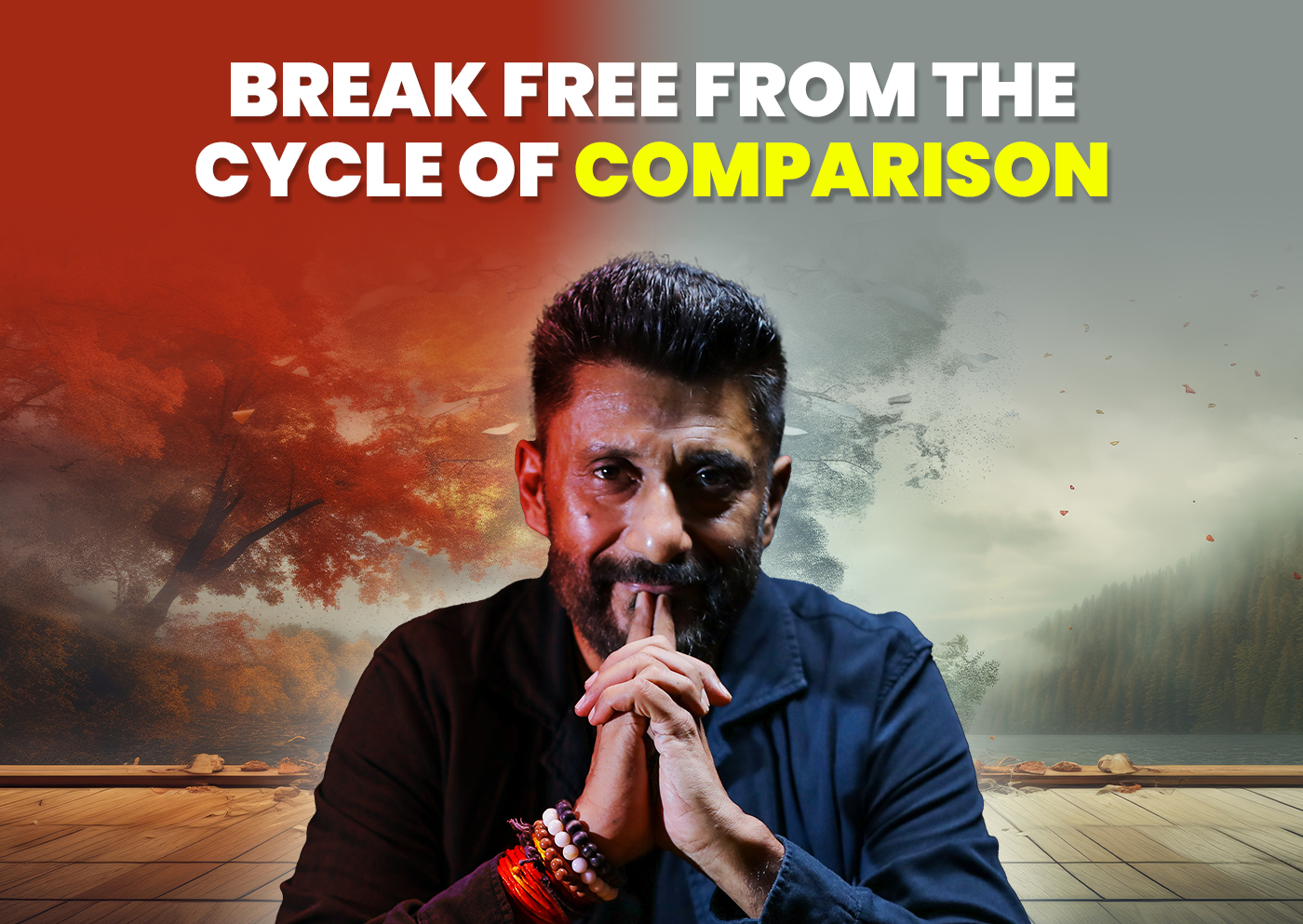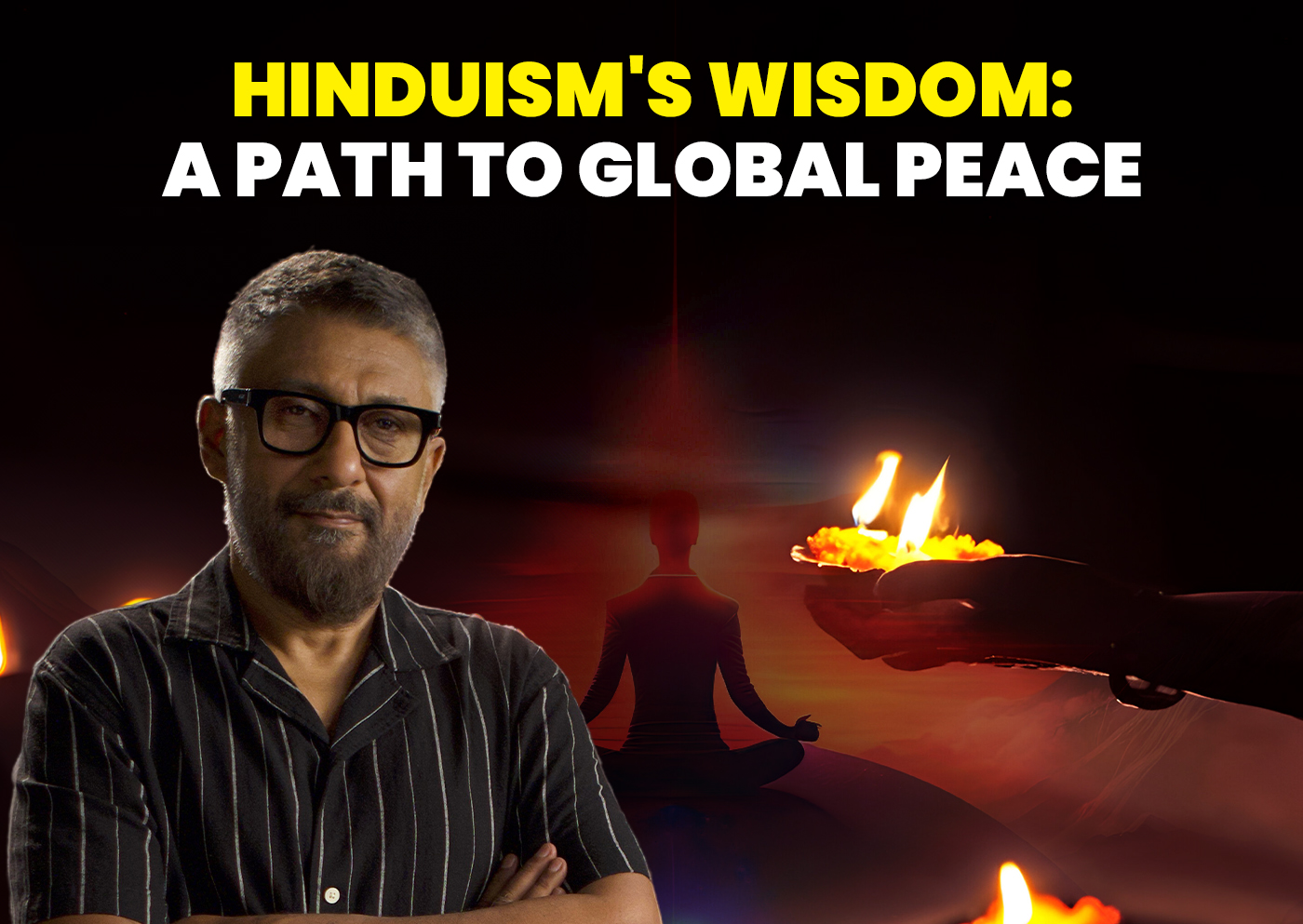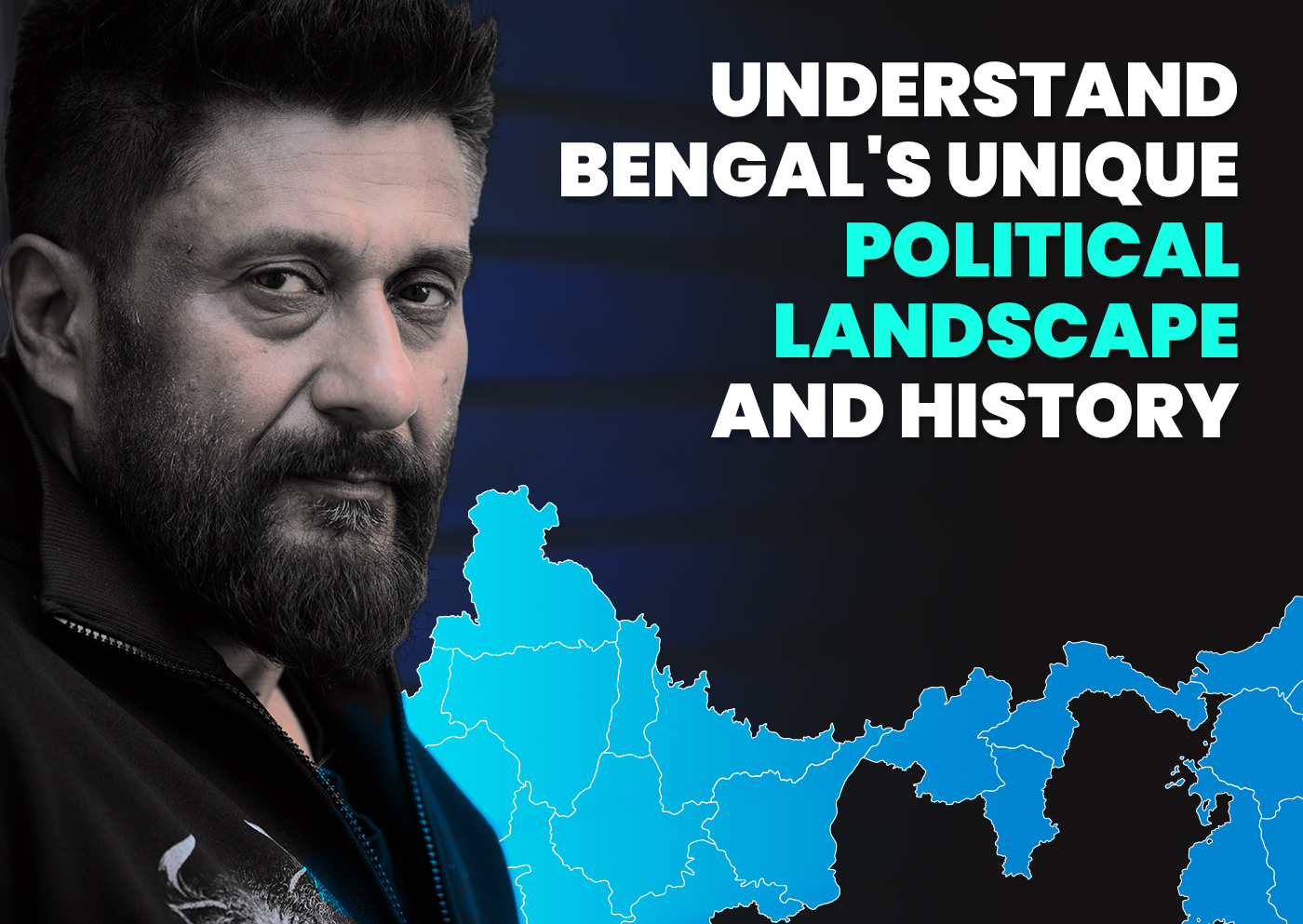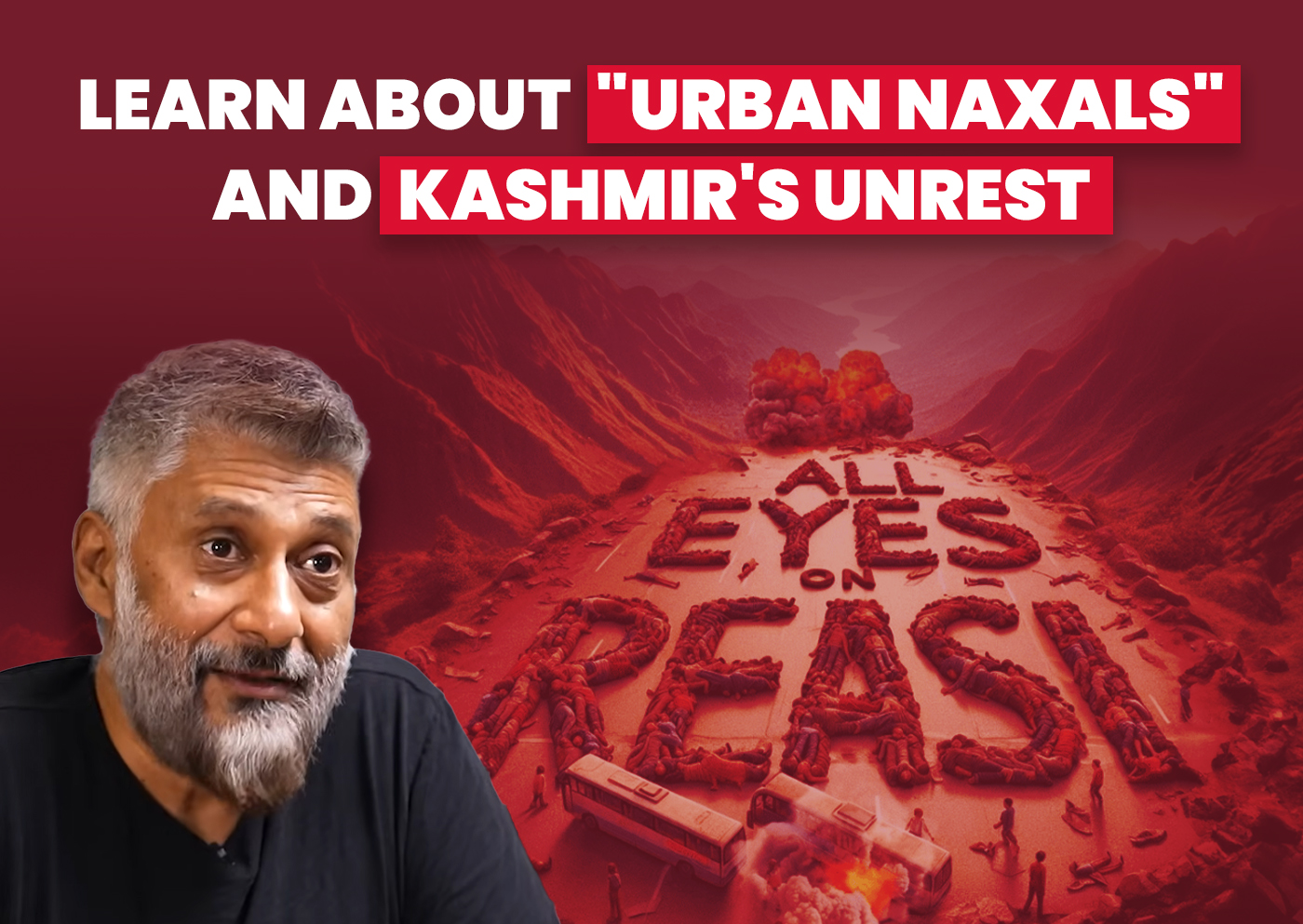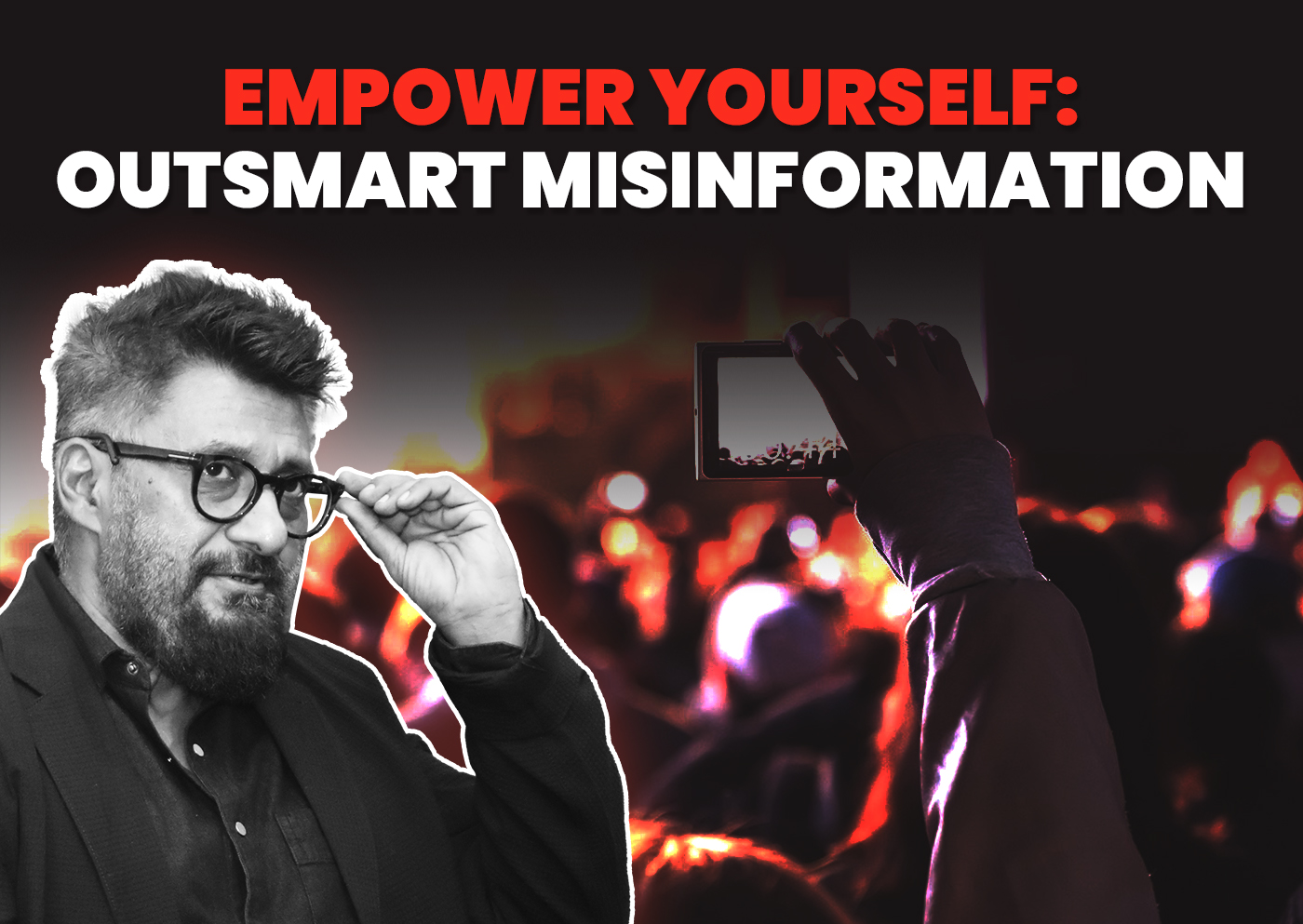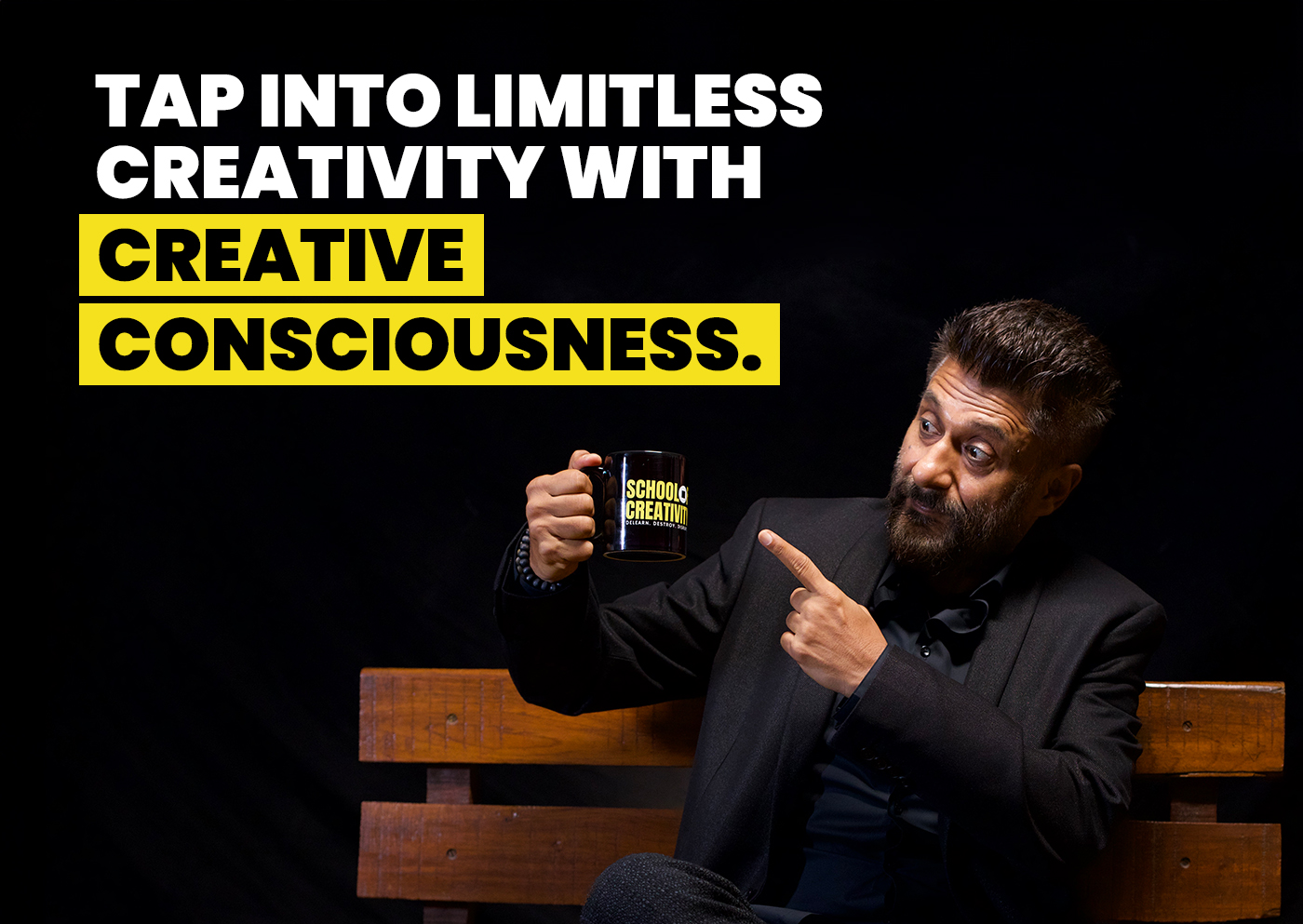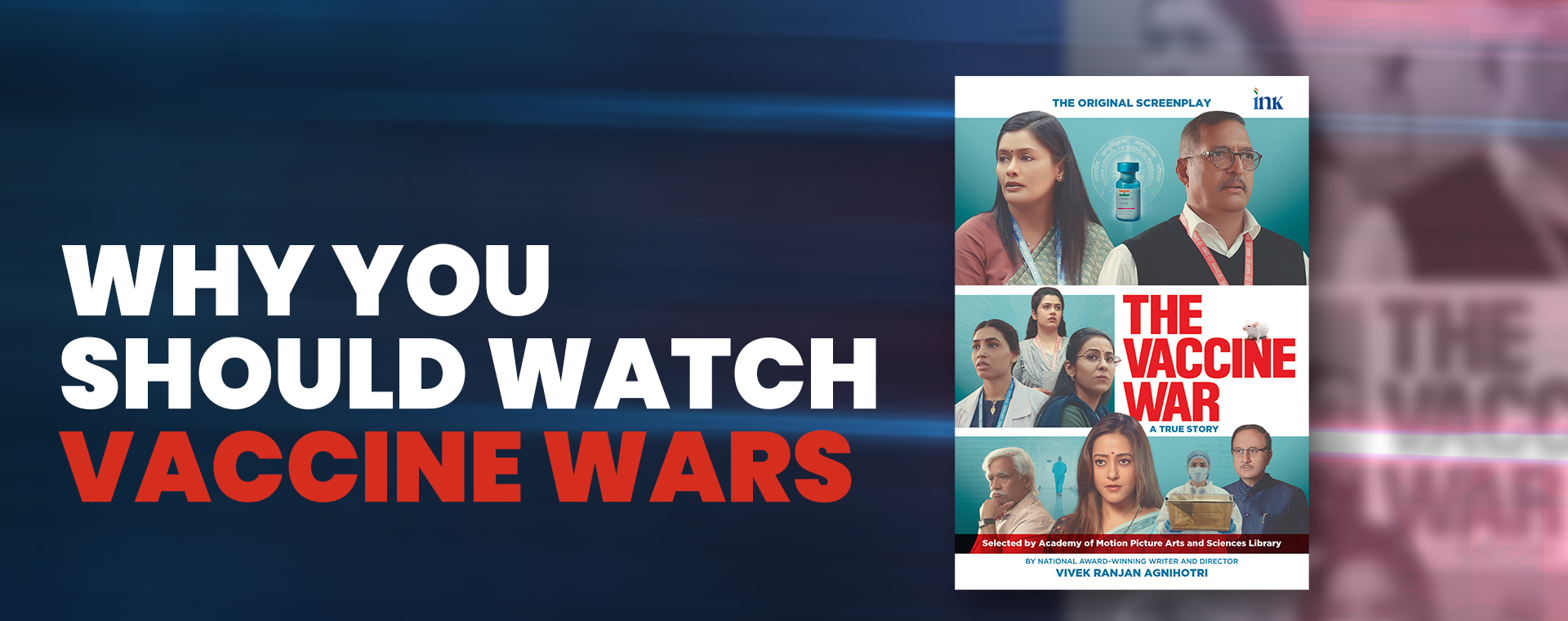
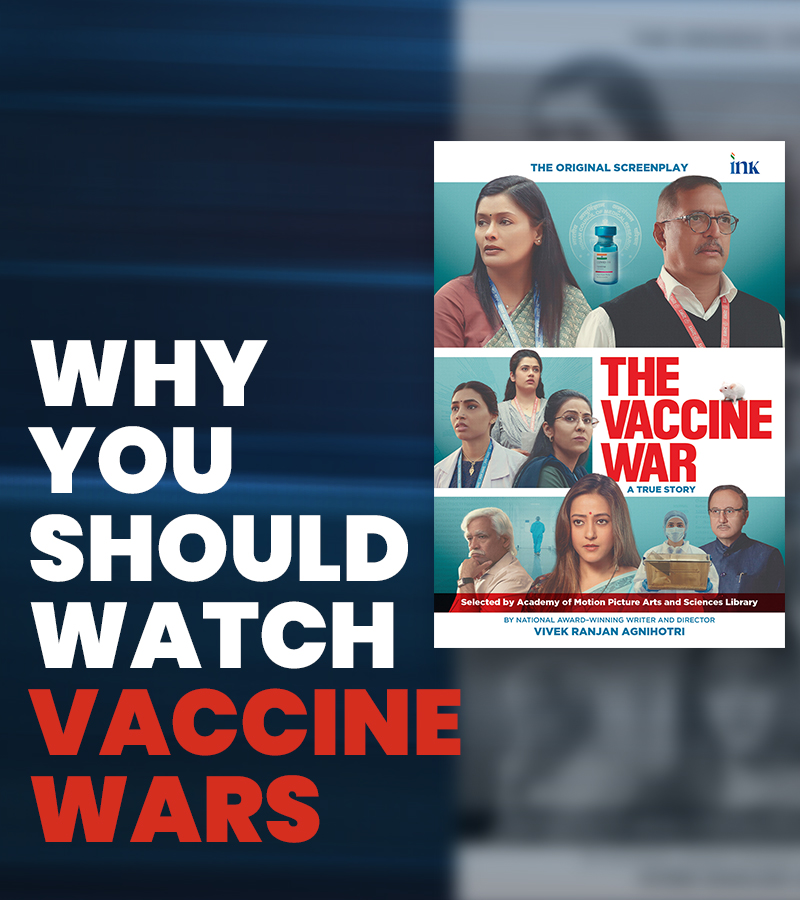
Why The Vaccine War is a Must-Watch (Even if You’re Over Covid)
Dive into The Vaccine War and discover how the media shaped our battle against the pandemic. In this cinematic journey, truth meets controversy.
In an era where sensational headlines and skewed narratives often obscure the truth, Vivek Ranjan Agnihotri’s eye-opening cinematic venture, ‘The Vaccine War ‘, illuminates the medical battles against COVID-19 and the ideological and informational conflicts. This film is not just a story about a virus; it’s a critique of the larger epidemic—media misinformation that continues to plague the world today.
‘The Vaccine War’ takes us on India’s tumultuous journey through the COVID-19 pandemic, shining a spotlight on the tireless efforts of frontline workers and the scientific community. However, beyond the virus, the film scrutinizes another pervasive threat—the media. Agnihotri raises concerns about how the media shapes public perception and discourse, influencing opinions and the effectiveness of national health responses.
Enduring Relevance of The Vaccine War:
1. Media Influence and Public Perception:
The Vaccine War delves into the media’s significant role during global crises, highlighting its power to shape public perceptions and influence policy decisions. The film exposes how sensationalism and misinformation can sway public opinion, leading to panic or complacency, which are detrimental to managing health emergencies. This exploration prompts viewers to critically evaluate the sources and content of their information. This lesson applies far beyond health crises to the broader political and social discourse realms.
2. Trust in Public Institutions:
A central theme of the film is the erosion of public trust in institutions, exacerbated during crises. The Vaccine War showcases the challenges health authorities and governments face as they navigate public fears, misinformation, and the urgent need for practical solutions. The film encourages a dialogue on how institutions can rebuild trust and ensure transparency and accountability in their operations, which is crucial for effective democratic governance.
3. The Ethics of Scientific Advancement:
The pressure on the scientific community to develop a vaccine within an unprecedented time frame brings to light the ethical dilemmas inherent in rapid innovation. The Vaccine War questions the compromises made in a rush for solutions, discussing scientific endeavors’ potential risks and moral obligations. This narrative is vital as humanity continues to rely on quick technological advancements to address health crises and environmental and social issues.
The Narrative of The Vaccine War
Through The Vaccine War, Agnihotri weaves a narrative that juxtaposes the heroics of medical professionals against the backdrop of media-driven chaos. The film delves into the complexities of developing a vaccine under pressure, the challenges of mass immunization, and the concurrent battle against misinformation. It portrays the media as a dual-edged sword capable of informing and misguiding the public, thereby playing a critical role in the war against the virus. This role continues to be crucial in today’s world.
Understanding the Role of Media in Shaping Perceptions and Policies
One of the pivotal themes explored in “The Vaccine War” is the significant influence of media on public perception and policy, especially during crises such as the COVID-19 pandemic. The film meticulously details how media sensationalism can lead to widespread panic, undermine scientific advice, and foster vaccine hesitancy. These examples are a stark reminder of the media’s power to shape narratives and the potential consequences of failing to adhere to responsible reporting standards.
Media’s Impact on Public Health Strategies
The Vaccine War demonstrates how media coverage affects public health strategies and emergency preparedness. By illustrating the repercussions of misinformation, the film makes a compelling case for the necessity of accurate and responsible journalism. It shows that well-informed media coverage can aid in developing robust public health policies crucial for managing crises efficiently.
The Educational Value of Media Analysis
This film is a narrative about a health crisis and an educational tool that breaks down complex concepts of public health response and media influence. By understanding these dynamics, citizens are better equipped to critically evaluate news sources and participate more effectively in public health discussions and initiatives.
A Call for Responsible Journalism
Vivek Ranjan Agnihotri’s The Vaccine War is a call to action, urging for a new standard of journalism that prioritizes truth and constructive discourse over sensationalism. This call is particularly relevant today, as the role of media extends beyond just reporting news to shaping the policies and public opinions that govern our responses to global events. By advocating for responsible journalism, the film empowers the audience to demand and support accurate, unbiased reporting.
Strengthening Community Engagement Through Media
The film also serves as an inspiration, highlighting how strong community engagement, supported by factual media reporting, can enhance national and local responses to public health crises. It advocates for mobilizing community resources and local initiatives, underscoring the importance of grassroots movements in complementing official health strategies. This portrayal of community engagement can inspire the audience to take an active role in their communities during health crises.
In conclusion, The Vaccine War is more than just a retrospective on the COVID-19 pandemic; it is a crucial commentary on the media’s role in society today. Understanding the themes presented in this film is essential as we navigate through an era marked by misinformation and a plethora of information sources. It not only provides valuable insights into the interplay between media, public perception, and policy but also stimulates critical thinking, which is as relevant today as it was during the height of the pandemic.

